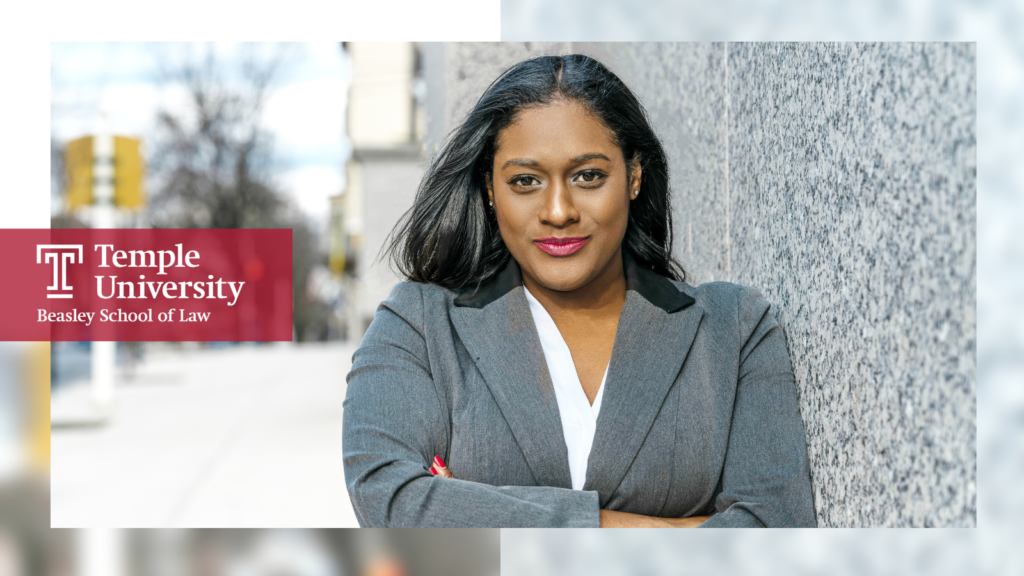
Law School Motivations
Hometown: Philadelphia, PA
Education:
- University of Maryland, College Park 2011 | Criminal Justice
Job: First-year Associate, BakerHostetler LLP
Program: Full-Time Day
Before law school, I was a paralegal, first at the U.S. Attorney’s Office and then at Merck & Co. My time as a paralegal gave me first-hand experience of what being an Assistant U.S. Attorney entailed. The more time I spent at the U.S. Attorney’s Office, the more I realized that I was not satisfied with being a paralegal, but I wanted to be an attorney. I wanted to do more. It was this drive that carried me through law school. Knowing, realizing, and believing in myself through all of my successes and my failures, I knew that I had to continue if I wanted to do more for not only myself but also for others.
Experiential Learning
Coming into law school, I believed that I wanted to be District Attorney. Because of that, I registered for the Integrated Trial Advocacy Program (“ITAP”) and the Systemic Justice Clinic. ITAP and the Systemic Justice Clinic were great practical experiences that helped me learn my strengths and weaknesses as a future trial advocate. I gained the competence and confidence I would need as a future attorney to step into a courtroom from these programs.
Faculty Impact
Dean Harris, Professor Tavares, and Professor Sibley have all been highly influential in shaping my legal education. Professor Tavares served not only as a great professor but also as a great mentor and example of what an attorney should strive to be. Professor Sibley showed me how to think outside the box of law school and that sometimes to find a resolution to a problem, you do not need to think like an attorney but just as a human being. Lastly, Dean Harris’ determination, and belief in seeing me succeed, helped to encourage, prepare and push me through these final two semesters. I am forever grateful for their guidance during my time at Temple.
The Temple Law Difference
An essential quality for any attorney is the ability to communicate. In my early stages of law school, a mentor at one of my summer internships told me that the one skill that most law schools do not teach is communication. From that point on, I made it my mission to make sure that I exposed myself to experiences that would help me become a better communicator. This meant taking advantage of any opportunity presented to me, where I could practice effectively communicating or speaking. From my internships, leadership positions, programs, and clinics like ITAP, the Systemic Justice Clinic, my Institute for Law Innovation & Technology (iLIT) fellowship, and networking events, I feel more confident and prepared in my ability as an effective communicator. I take great comfort in knowing that Temple prepared me for what is to come.
What I Wish I Knew Before Law School
Law school is nothing like undergrad. I expected it to be a lot of work, time, and dedication, but I did not expect it to require a different mindset of how to think. Law school examinations required much critical thinking, which if depending on your undergraduate experiences and major was not a type of skill that is typically required, could be challenging to grasp. Having to not only read a significant amount of information for classes but then critically apply what you learned was no easy task.
